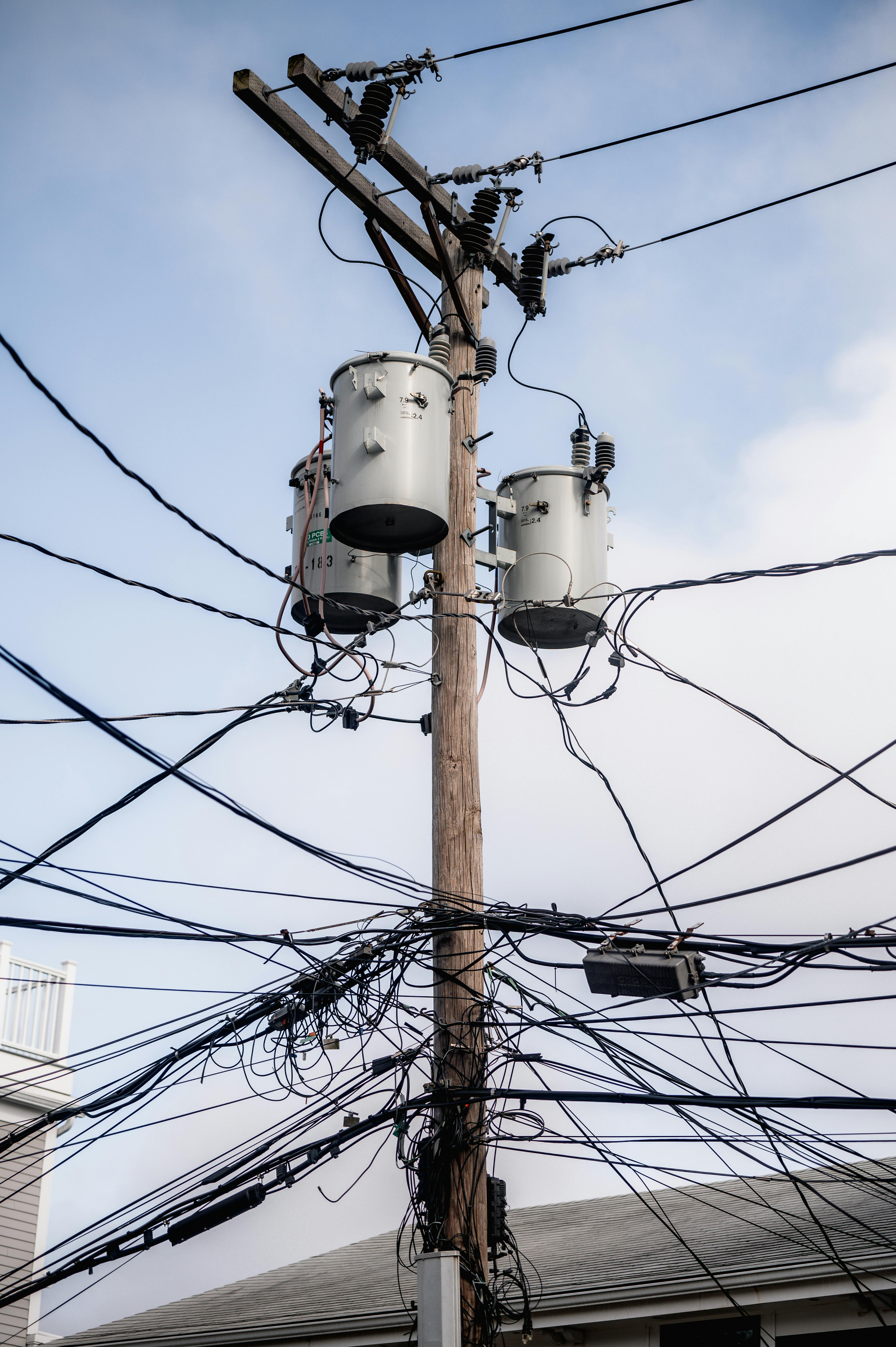Unlocking the mystery of prepaid electricity is no small task. You’re about to embark on a riveting journey where you’ll uncover the truth about whether prepaid electricity is really a good deal or not. Amidst the fast-paced evolution of modern utilities, this form of power purchase has undeniably piqued curiosity. Through your eyes, the veil of uncertainty will be lifted, punctuated by intriguing details outlining the advantages and disadvantages of prepaid electricity. Your trailblazing adventure awaits, ready to illuminate the facts and debunk myths in the realm of prepaid electricity.

Understanding Prepaid Electricity
In your quest to make energy-efficient and smart decisions for your household, you may have come across prepaid electricity. But what is it and how does it work?
Definition of Prepaid Electricity
Prepaid electricity is akin to a pay-as-you-go phone plan where you purchase your power before you use it. You pay upfront for a specific amount of kilowatt-hours, and your consumption is deducted from that amount. Once the prepaid amount is used up, you can recharge or add more energy to your account.
How does Prepaid Electricity work?
When you opt for a prepaid electricity plan, your provider installs a smart meter in your home. This gadget lets you monitor your energy consumption in real-time. As you use electricity, the meter reduces the prepaid credit. When the balance gets low, you’ll receive a notification so you can top-up. With prepaid electricity, no surprises pop up at the end of the month.
Pros of Prepaid Electricity
Like any system, prepaid electricity comes with its own set of perks.
Transparency and clarity in billing
Prepaid electricity holds the charm of total transparency. You see precisely how much electricity you’re using and how fast you’re using it. Under this system, the mysteries of energy bills are unveiled, offering you a clearer understanding of your consumption patterns.
Ease of budget management
Tight on budget? Prepaid electricity lets you purchase power based on your financial capability. You can adjust your usage to make sure you stay within your budget. It’s a smart way to keep your expenses under control.
No deposit required
Traditionally, electricity providers require you to make a deposit before they start supplying power to your home. But with prepaid electricity, that’s not the case. You just need to top-up your account to kickstart the supply.
Eliminates the need for Credit Checks
Credit checks can sometimes pose a hurdle when signing up with traditional electricity providers. However, prepaid electricity providers don’t need to run a credit check. All you need is a valid ID to get started.
Cons of Prepaid Electricity
Despite the benefits, there are a few downsides to prepaid electricity.
Possibility of power disconnection
One risk you assume with a prepaid plan is the possibility of a power disconnection. If you consume all your prepaid balance and don’t recharge promptly, you could find yourself sitting in the dark.
Inconvenience of frequent payments
Although disposable payments offer some advantages, they can also become bothersome. Unlike postpaid plans where you pay once a month, prepaid electricity may necessitate more frequent payments, which can be inconvenient.
Higher rates compared to postpaid plans
Generally, prepaid electricity plans come with a slightly higher per kilowatt-hour rate compared to postpaid plans. So, while you get the ease and simplicity of prepaid electricity, you might end up paying a higher price for it.
The Economics of Prepaid Electricity
Before you decide to switch, it’s essential to understand how prepaid electricity pricing works.
Understanding the pricing structure
The price you pay for prepaid electricity depends on two factors: the fixed daily rate and the variable per kilowatt-hour rate. The daily rate is a fixed amount you pay every day regardless of your usage, while the kilowatt-hour rate changes based on your actual consumption.
Comparing prices with traditional plans
Comparing prepaid electricity plans to traditional postpaid plans can be tricky. Ensure to compare the per kilowatt-hour rates, daily rates, and any additional charges like connection fees or maintenance costs.

Prepaid Electricity vs. Traditional Postpaid
Primary Differences
The main difference between prepaid and postpaid plans is the timing of payment. With prepaid electricity, you pay before you consume, while a postpaid plan allows you to use first and pay later.
Benefits of each
Prepaid electricity offers transparency, easy budget management, no deposit, and no credit checks. On the other hand, postpaid plans usually have lower rates, less frequent payment, and no risk of sudden disconnection.
Which is ideal for your household?
The choice between prepaid and postpaid electricity all boils down to your household’s consumption, budget, and preference. If you prefer greater control over your electricity usage and costs, a prepaid electricity plan could be the right fit. On the flip side, if consistency and simplicity appeal more to you, then a postpaid plan might be the way to go.
Who Should Consider Prepaid Electricity?
Ideal consumers for prepaid plans
Students, renters, low-income households, and anyone struggling with managing their monthly bills might find prepaid electricity to be a great option. It can also be a good fit for those with poor credit scores or people living in short-term housing.
Situations where prepaid electricity makes sense
Prepaid electricity plans make most sense in situations where individuals want to keep a tight rein on their expenses. It can also be ideal for people who move frequently or those who use electricity sparingly.

Who Should Avoid Prepaid Electricity?
Consumer profiles not suitable for prepaid
Families with high energy consumption or those who do not want the hassle of maintaining a prepaid balance might be better off with traditional postpaid plans.
Situations where prepaid plans may be disadvantageous
If regular maintenance of your electricity balance or dealing with frequent outages because you forgot to top-up your account sounds like a nightmare, then prepaid electricity might not be your best bet.
Customer Experience with Prepaid Electricity
Feedback and Reviews
Customer feedback on prepaid electricity is mixed. Some consumers appreciate the freedom and control it provides, while others find the rates to be too high.
Customer service experience
When it comes to customer service, prepaid electricity providers are mostly on par with other electricity providers. Many offer multiple channels of communication, including phone, online chat, and email.
Understanding the Switch: From Postpaid to Prepaid
Factors to consider when switching
Before switching from postpaid to prepaid, consider the cost differences, check if your current energy provider supports the switch, and determine whether you’re comfortable with the idea of keeping an ongoing balance.
Process of switching
Switching from postpaid to prepaid usually involves closing your current account, settling any outstanding debts with your present provider, and signing up with a new prepaid provider.
Pros and cons of making the switch
The upside to making a switch is gaining control over your electricity consumption. On the flip side, you need to be diligent about maintaining your electricity balance and may end up paying higher rates.
Final Thoughts: Is Prepaid Electricity a Good Deal?
Analyzing the overall advantages and disadvantages
Prepaid electricity comes with clear benefits- transparency, control over your expenses, no deposits, and no credit checks. The downsides include higher rates, the risk of disconnection, and frequent top-ups.
Deciding based on your personal needs and situation
Prepaid or postpaid, there’s no one-size-fits-all solution. Your decision should hinge on your financial situation, consumption patterns, and lifestyle. Always remember, the goal is to make energy decisions that work best for you and your household.
